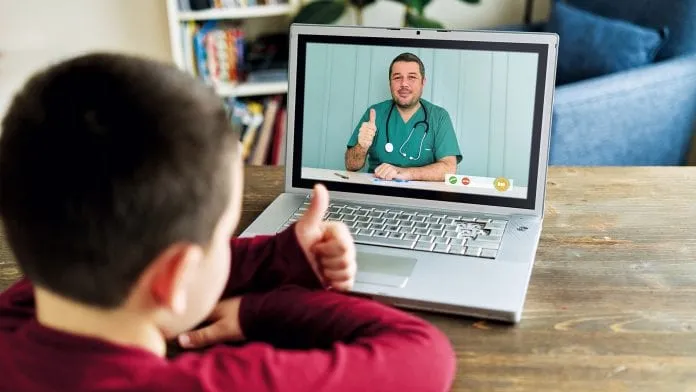
Computer scientists at the University of Maryland, College Park, are collaborating with child behavioral specialists at the University of Maryland, Baltimore, to improve telehealth services for children living in rural areas of the state, who are now even more isolated due to COVID-19.
Aniket Bera, an assistant research professor in the University of Maryland Institute for Advanced Computer Studies (UMIACS), is principal investigator of the $90K award. Bera and Dinesh Manocha, the Paul Chrisman Iribe Professor of Computer Science, are working with psychiatric experts in Baltimore to develop artificial intelligence (AI) tools to improve mental health diagnoses for children via webcam.
The focus of the study will be on the children’s caregivers, the researchers say, who are typically the primary target for child behavioral interventions.
But due to COVID-19, behavioral specialists are much less likely to meet with children or their caregivers in-person—particularly in rural areas of the state—prompting the need for providing both diagnoses and treatment options via a virtual telehealth network.
Bera and Manocha, who are experts in developing AI tools that can interpret human emotion, will build a system that can leverage visual and vocal or text attention mechanisms from caregivers, capturing the fine-grained interplay between visual cues and language.
“From an AI perspective, the application of automated engagement strategies for child behavioral healthcare is novel,” says Bera. “And the use of a multimodal recognition algorithm will advance the quality of AI engagement research.”
The researchers will collect data from more than 2,000 minutes of virtual family therapy sessions through three mediums: video, to capture facial expressions and movement; sound, for pitch and speech pattern; and heartrate by wrist monitor.
Using this data, the researchers will develop an AI tool that can produce both an engagement and an emotional state score for each telehealth session.
Both the caregiver, which is usually a parent, and the provider—a nurse, psychologist, social worker or counselor—will submit reports on each session for the researchers to better assess their AI tool.
This automated engagement tool will give feedback to the provider in real-time, adds Bera, ultimately enhancing provider engagement training and improving quality of care.
The project is part of the MPowering the State’s COVID-19 Response Fund, designed to support innovative, high-impact collaborations between UMCP and UMB that will mitigate the impact of the COVID-19 pandemic for people who are the most at risk, or who are experiencing the greatest disparities in healthcare.
—Story by Maria Herd